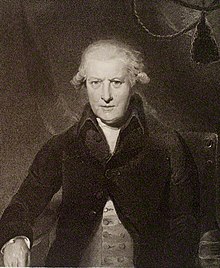The Viscount Barrington | |
|---|---|
 | |
| Chancellor of the Exchequer | |
| In office 19 March 1761 – 29 May 1762 | |
| Monarch | George III |
| Prime Minister | The Duke of Newcastle |
| Preceded by | Henry Bilson Legge |
| Succeeded by | Sir Francis Dashwood, Bt |
| Member of Parliament for Plymouth | |
| In office 1754–1778 | |
| Preceded by | Arthur Stert |
| Succeeded by | Viscount Lewisham |
| Member of Parliament for Berwick-upon-Tweed | |
| In office 1740–1754 | |
| Preceded by | Lord Polwarth |
| Succeeded by | John Delaval |
| Personal details | |
| Born | 5 January 1717 Beckett, Shrivenham, Berkshire, England |
| Died | 1 February 1793 (aged 76) Beckett Hall, Shrivenham, Berkshire |
| Political party | Whig |
| Spouse |
Mary Lovell
(m. 1740; died 1764) |
William Wildman Shute Barrington, 2nd Viscount Barrington, PC (15 January 1717[1] – 1 February 1793), was a British politician who sat in the House of Commons for 38 years from 1740 to 1778. He was best known for his two periods as Secretary at War during Britain's involvement in the Seven Years War and American War of Independence.
- ^ Daniel Lysons (1806). Magna Britannia: Being a Concise Topographical Account of the Several Counties of Great Britain. Containing Bedfordshire, Berkshire, and Buckinghamshire. Cadell. p. 367.